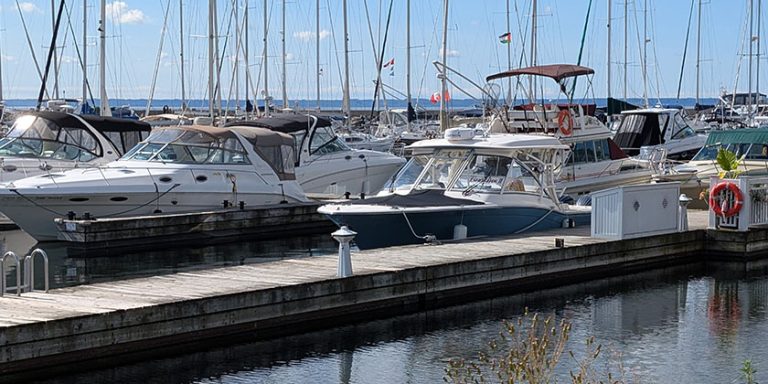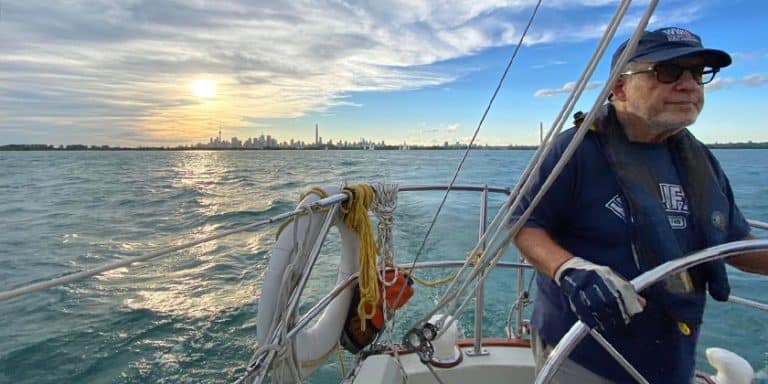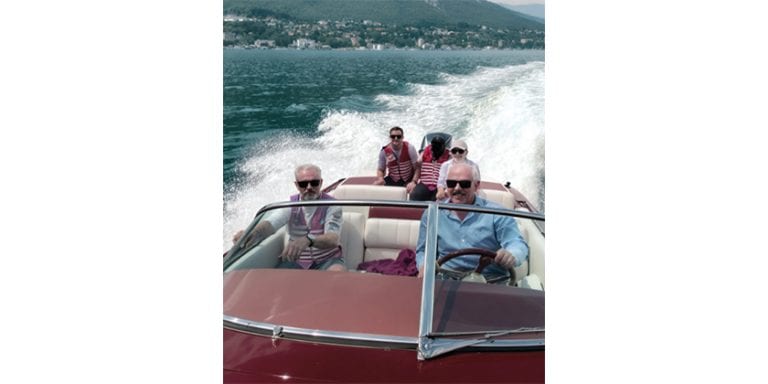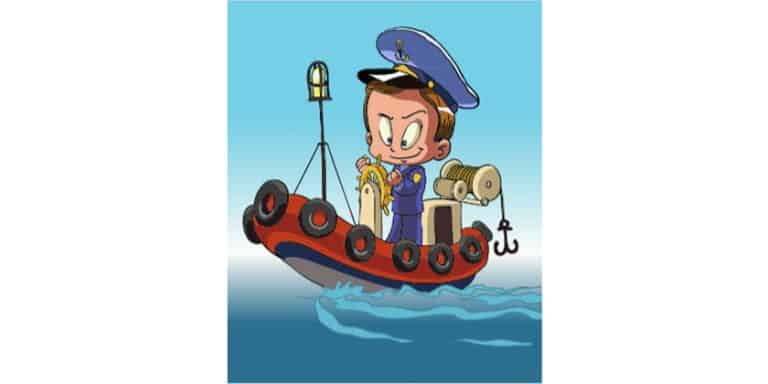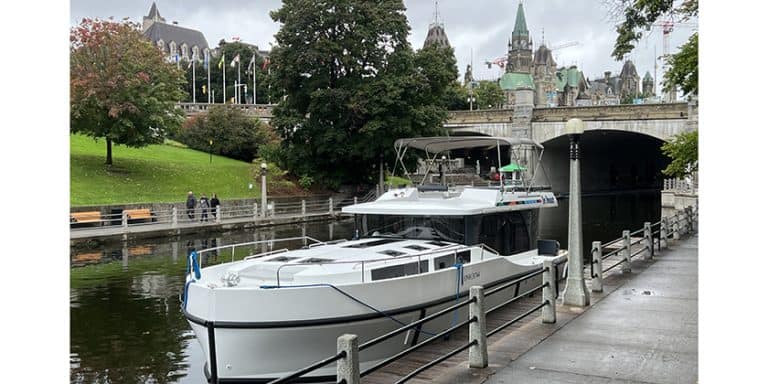The Kids Are Alright (on Boats)
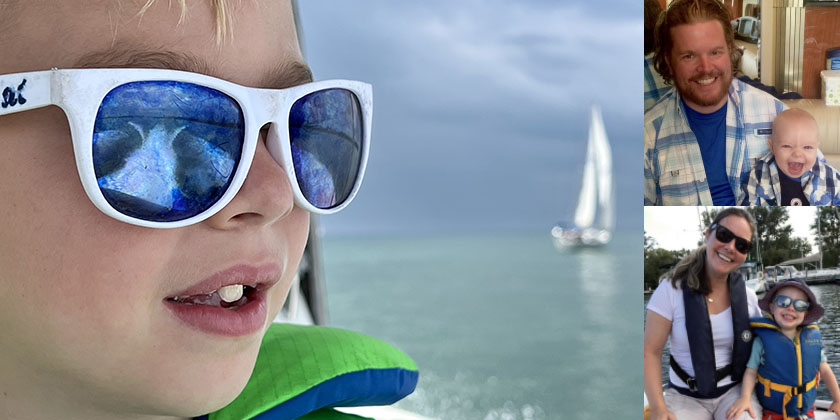
By Steven Bull – Host, Water Ways TV
In preparing for this article, I bounced a few ideas around, from interviewing other parents to finding “experts” in childcare or sourcing the best products for childproofing, but then I remembered something I heard a lot when our son was born that, at first, sounded dismissive but in retrospect was sage wisdom: “You’ll figure it out yourself.”
Instead of being a non-answer, what I now take that to mean is situations are as unique as individual personalities, and when you add in lifestyle differences, and compound the variations of boat styles… wait. I got a nosebleed. Too many options!
Forget the permutations, the bottom line is your situation may vary wildly from mine and if I get specific on how to baby-proof a 2001 Sea Ray 380 Sundancer and you have a 21-foot bowrider, this whole exercise is lost.
Instead, I’ll try and keep it as general as possible based on spending more time on our boat than the average boater, having an 8-year-old son who has grown up on and around the water and a wife who did the same. The key message here is that boating is amazing for kids. They can have fun, grow as people, and learn a lot if you do it right.
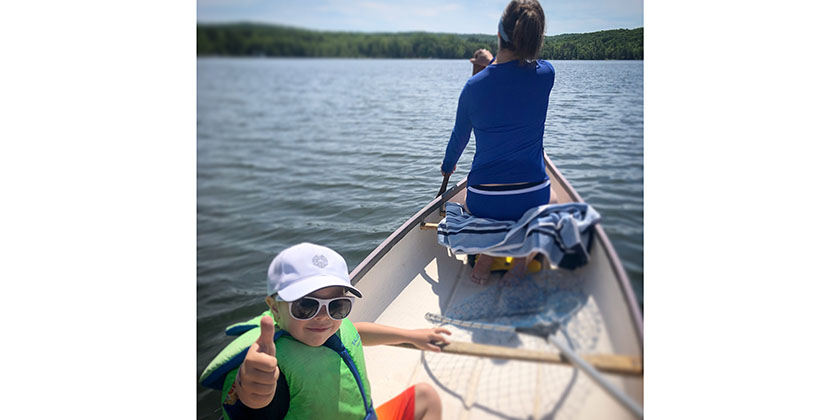
- SAFETY
Before we think about fun or even comfort, you need to check this box. The most obvious one is that a personal flotation device or lifejacket is a must when near the water. Some marinas have rules that kids under a certain age, usually 12 years old, must wear a PFD anytime they are on the docks. But even without being told, this is just good practice. As I always say, no one sets out to have an accident. That’s why they’re called accidents not planned injuries. Kids – as mature as you may think they are – are still kids. And kids can get distracted. All it takes is one stub of a toe on a cleat or trip on a misplaced mooring line and you’re in the water.
You may say, “My kid is a top-notch swimmer, this isn’t a problem”, and that’s great. I personally feel that swimming lessons should be, essentially, mandatory. Canadian kids are more likely to be around water than the average child anywhere else in the world simply due to geography. There are more lakes in Canada than the rest of the world combined! There are rivers and oceans on top of that, not to mention pools.
But sometimes falls aren’t directly into the water. My in-laws have a story of my wife as a little girl falling between a boat and the dock, banging off each side like a Plinko chip on the Price Is Right. They grabbed that top loop of the PFD, snatched her back up instantly and she was okay, but if you suddenly find yourself in the water without someone to lift you out or with a broken arm from an awkward fall, it doesn’t really matter how good your backstroke is.
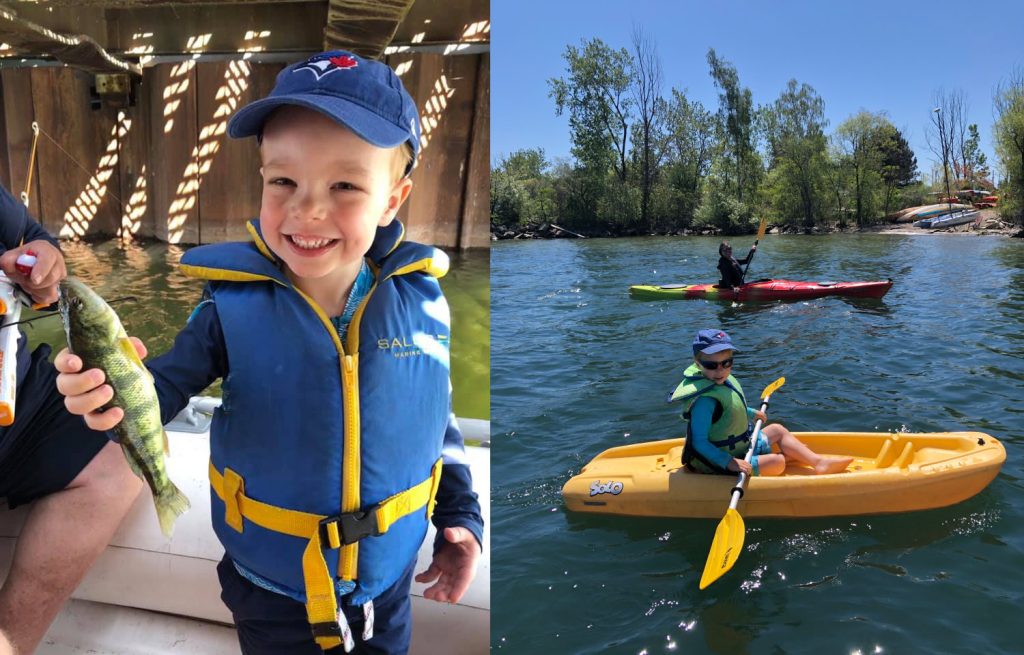
Don’t forget that PFD technology and comfort has come a long way. I recall my first days on the water and all we had on that first boat on Fairy Lake in Huntsville, Ontario were bright yellow, keyhole-style lifejackets. Real talk: they sucked. I’m sure they were effective but walking around with enough foam to pack a week of Amazon packages around your neck does not make for a comfortable day in the summer sun.
Kids are resilient in tough times and are masters of “going-with-the-flow”. You just know what your normal is. If your normal is a properly sized, well-fitting, modern PFD, you get used to it. Some call it a “boat coat” for little ones to take the “this keeps you from dying and yes you could die” thought from creeping into your wee one’s whirling mind. And it’s amazing how quickly it becomes just like wearing a toque in the winter. Sure, there are times when my son has popped off the dock onto land without it, but more often than that he either forgets to take it off when down below for the night or ends up wearing it while having lunch at a restaurant because “it’s comfortable and I just forgot ok? Geez!” (Direct quote) and he doesn’t want to take it off.
2. GET THEM INVOLVED
As your kids age, give them specific roles. Even the most independent or defiant ones relish the importance of being trusted with a meaningful task – trust me, our son is going for a World Record in the sheer volume of things he knows better than his parents, but he steps up around the boat and is an amazing team member.
Whether that be having your kids flipping the blowers on in a larger cruiser, keeping track of how long they are on before departing, power washing, or being a “lookout” when approaching specific landmarks, or the dock. When they get older, they can get even more helpful with catching/throwing lines and, ultimately, driving while Mom and Dad sit back and pat each other on the back for crushing this parenting thing!
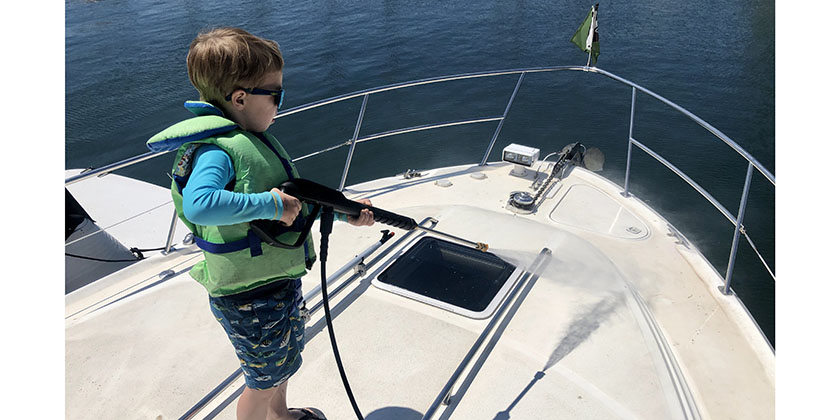
Having your kids take some aspect of ownership in the activity, including cleaning and prep, is the secret sauce to having this become a family activity and not just another place full of arbitrary rules where a parent is in charge. Introduce tasks that are a stretch for them and borderline make you uncomfortable in that you’re not sure they’re old enough for. That’s the sweet spot where growth happens.
We’ve even taken our son out of school for the day to help with launching this past year. Why? In part to show him that it’s not as “fun” as he thought it was when he felt left out for missing a day on the boat, but mostly to get him involved in the tasks. This is effectively our summer home. You have roles and responsibilities in this home. Have them clearly defined, age-appropriate yet challenging enough to be engaging, and supervise any riskier tasks.
Give your kid room to surprise you.
Not only does all this keep them busy, engaged and in the moment, but I firmly believe this creates better boaters in the future.
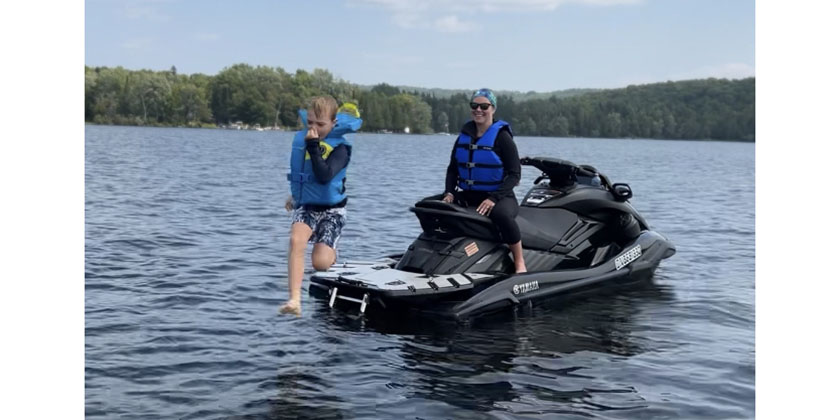
3. IT’S (SUPPOSED TO BE) FUN
Now that you’re safe you can focus on the good times! This is where things get really personalized depending on your child’s personality. I’ve heard tales of well-behaved children sitting quietly and reading or doing puzzles aboard their boat. I’ve yet to see it so I’m full-on calling that a myth for now.
The good news, if you have an active child as we do with our son, is that you’re already immersed in a world conducive to exercise and fun.
Canoeing is good, but we found that kayaking had a greater pick-up of interest. Probably because there’s total control and it seems busier than seemingly leisurely paddles with a parent steering.
Fishing can be hit or miss with kids from my experience. It’s either the most fun and they are all but addicted to it or totally disinterested. If you keep it fun and non-competitive, and – like being around the boat – slowly let them do more themselves, this can be amazing. Let them touch then handle fish, bait a hook, or pick their own lures (let them pick the “wrong one”! It’s about the act not the result at this age and they will learn what lands fish and what’s just fun to drag around the water).
Swimming of course, is a natural but one that can be surprisingly rare. Sometimes people think it’s too much work on a smaller boat to bring towels, things will get wet and now we have to find somewhere to anchor – and you should do that because boats drift and unless someone remains on board that is always a concern. Well, it’s a boat, it can get wet and the little bit of effort leads to lifelong memories. Sunset swims in a quiet bay or cannonballs off a WaveRunner instead of off the dock, are scientifically proven to be super fun.
If you use your boat to explore different destinations whether it be long journeys or day trips into town, throw bikes, scooters or rollerblades in with you. Sure, they take up space but they give you a great activity and a fun way to explore further. It never feels like it’s in the way if it’s useful!
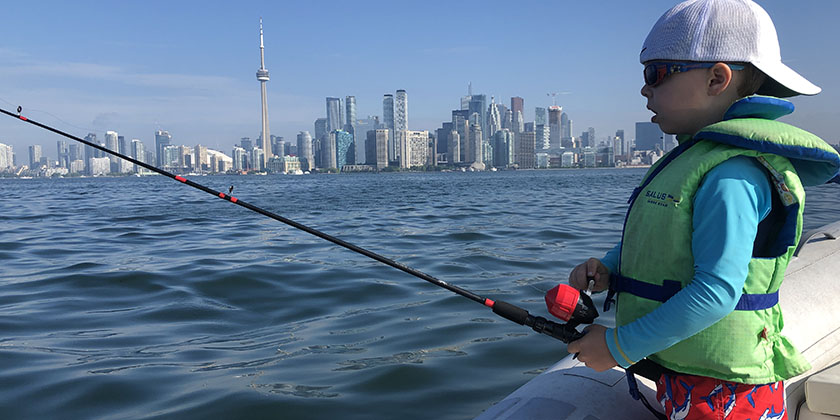
The bottom line is, kids around the world survive and thrive in much smaller spaces with far fewer entertainment options. Even though it can be a shockingly sparse landscape to a kid used to multiscreen homes full of toys and playdates, it’s a new world of adventures to go on, fun to have, and memories to make.
I can even remember the smell of those yellow lifejackets as the summer sun beat down on them, the worth of them on my arms folded across to hold it as I watched the wake curl off the old Johnson outboard as we raced across the water. I wonder what my son’s first boating memory will be?

